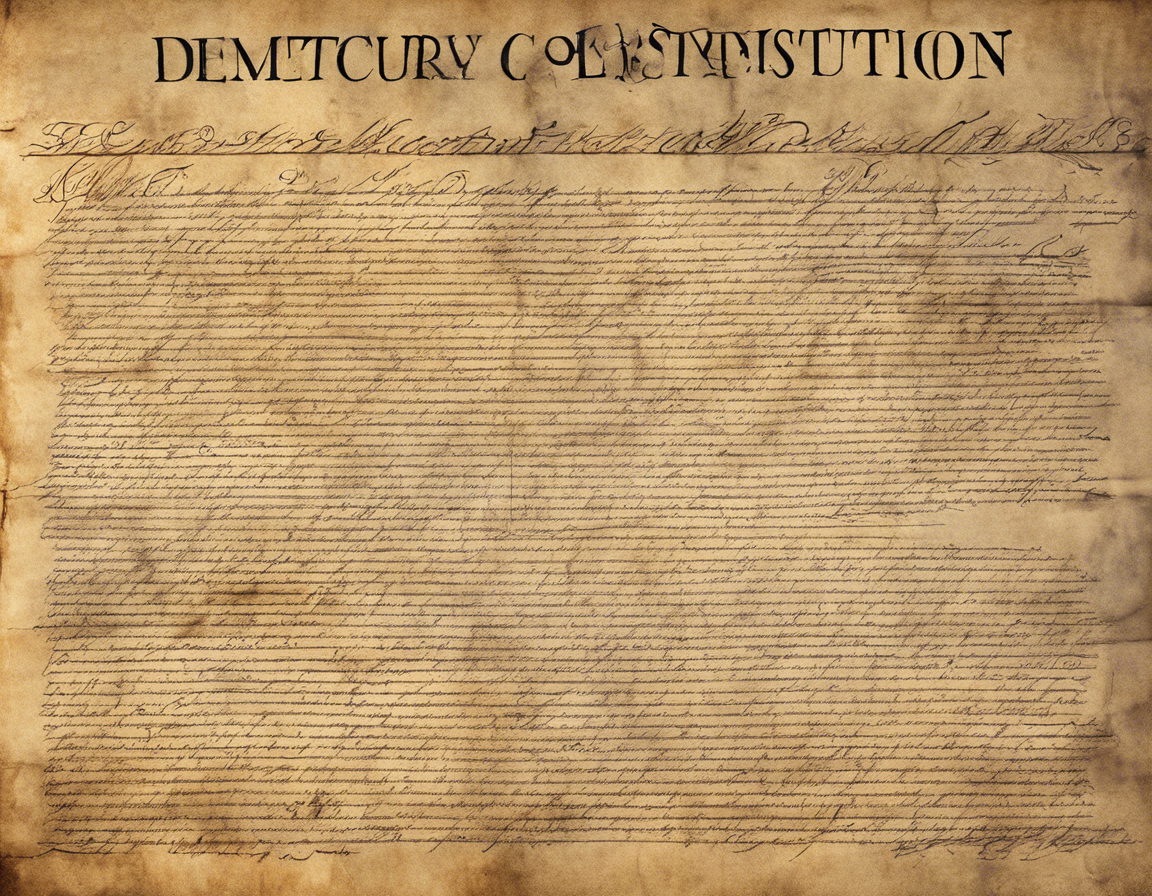
The Importance of Constitution in Democratic Nations
The constitution of a country serves as the foundational legal document that outlines the structure of government, safeguards the rights of its citizens, and establishes the rule of law. In the context of democratic nations, the constitution holds immense significance as it provides the framework for governance, enshrines the principles of democracy, and ensures the protection of individual liberties. This article delves into the importance of constitutions in democratic nations, highlighting their role in promoting stability, accountability, and justice.
The Role of Constitutions in Democratic Nations
1. Protection of Rights and Liberties
One of the primary functions of a constitution in a democratic nation is to safeguard the fundamental rights and liberties of its citizens. These rights include freedom of speech, religion, assembly, and the right to a fair trial. By enshrining these rights in the constitution, democratic nations ensure that citizens are protected from government overreach and arbitrary actions.
2. Limiting Government Power
Constitutions serve as a check on government power by establishing a system of separation of powers and checks and balances. By dividing governmental authority among executive, legislative, and judicial branches, the constitution prevents any one branch from dominating the others. This system of checks and balances ensures that no single entity can abuse its power, thereby preserving the democratic nature of the government.
3. Rule of Law
In a democratic nation, the constitution is supreme and serves as the foundation for the rule of law. This means that all individuals, including government officials, are subject to the same laws and are held accountable for their actions. The rule of law ensures that decisions are made based on legal principles rather than arbitrary discretion, fostering fairness and justice within the legal system.
4. Democratic Principles
Constitutions in democratic nations embody core democratic principles such as popular sovereignty, rule by majority consent, and protection of minority rights. By establishing a framework for free and fair elections, the constitution ensures that political leaders are accountable to the citizenry and that the will of the people is respected.
5. Constitutional Amendments
Another crucial aspect of constitutions in democratic nations is the provision for amendments. As societal norms and values evolve, constitutions must be able to adapt to these changes. The ability to amend the constitution allows for flexibility while ensuring that the fundamental principles of democracy are preserved.
Challenges to Constitutional Governance
1. Constitutional Erosion
One of the key challenges facing constitutional governance in democratic nations is the erosion of constitutional principles. This can occur through suspension of constitutional rights during emergencies, weakening of checks and balances, or abuses of power by government officials. Vigilance is required to protect the constitution from erosion and maintain its integrity.
2. Interpretation
The interpretation of constitutional provisions can also pose challenges to constitutional governance. Different interpretations of the same clause can lead to conflicting rulings by the judiciary, creating uncertainty and inconsistency in the application of the constitution. Clarity and consistency in constitutional interpretation are essential for upholding the rule of law.
3. Implementation
Ensuring the effective implementation of constitutional provisions is another challenge faced by democratic nations. Bureaucratic inefficiencies, corruption, and lack of capacity can hinder the enforcement of constitutional rights, undermining the credibility of the constitution. Robust mechanisms must be in place to ensure the implementation of constitutional mandates.
4. Judicial Independence
The independence of the judiciary is crucial for upholding the integrity of the constitution. Political interference, bribery, and intimidation can undermine judicial independence, compromising the ability of the judiciary to serve as a check on government power. Safeguarding judicial independence is essential for maintaining constitutional governance.
FAQs – Frequently Asked Questions
1. What is the difference between a constitution and ordinary laws?
A constitution is the supreme law of the land that establishes the fundamental principles and framework of government. Ordinary laws, on the other hand, are legislation that detail specific rules and regulations within the framework set by the constitution.
2. Can a constitution be amended?
Yes, constitutions in democratic nations typically include a provision for amendments to accommodate changing circumstances and evolving societal norms. However, the process for amending a constitution is often rigorous and may require consensus among various branches of government.
3. How does a constitution protect individual rights?
Constitutions in democratic nations include provisions that guarantee fundamental rights and liberties to individuals. These rights are legally protected and cannot be infringed upon by the government without due process of law, ensuring that citizens are shielded from arbitrary government actions.
4. What role does the judiciary play in upholding the constitution?
The judiciary serves as the guardian of the constitution by interpreting its provisions and ensuring that laws enacted by the government adhere to constitutional principles. The judiciary plays a crucial role in protecting individual rights, upholding the rule of law, and checking the power of the government.
5. How does the constitution promote democracy in a nation?
Constitutions in democratic nations establish the framework for democratic governance by outlining the division of powers, protecting individual rights, and ensuring accountability of government officials. By embodying democratic principles such as popular sovereignty and rule of law, the constitution safeguards the democratic process.
In conclusion, the constitution plays a pivotal role in upholding democratic values, protecting individual rights, and ensuring the sustainability of democratic governance in nations around the world. By recognizing the importance of constitutions in democratic nations, we can appreciate the foundations upon which stable and just societies are built.


